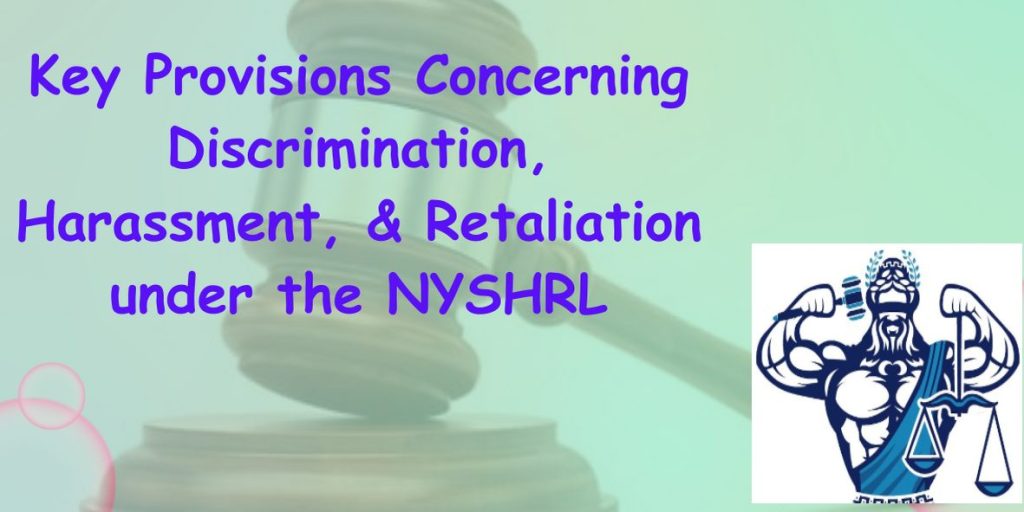Here at the Law Office of Vincent Miletti, Esq. and the home of the #UnusuallyMotivated movement, we take pride as a resilient and dependable legal services firm, providing such services in both a traditional and online, web-based environment. With mastered specialization in areas such as Employment and Labor Law, Intellectual Property (IP) (trademark, copyright, patent), Entertainment Law, and e-Commerce (Supply Chain, Distribution, Fulfillment, Standard Legal & Regulatory), we provide a range of legal services including, but not limited to traditional legal representation (litigation, mediation, arbitration, opinion letters and advisory), non-litigated business legal representation and legal counsel, and unique, online legal services such as smart forms, mobile training, legal marketing and development.
Still, here at Miletti Law®, we feel obligated to enlighten, educate, and create awareness, free of charge, about how these issues and many others affect our unusually motivated® readers and/or their businesses. Accordingly, to achieve this goal, we have committed ourselves to creating authoritative, trustworthy, & distinctive content. Usually, this content is featured as videos posted on our YouTube Channel https://www.youtube.com/channel/UCtvUryqkkMAJLwrLu2BBt6w and blogs that are published on our website WWW.MILETTILAW.COM. With that, the ball is in your court and you have an effortless obligation to subscribe to the channel and sign up for the Newsletter on the website, which encompasses the best way to ensure that you stay in the loop and feel the positive impact of the knowledge bombs that we drop here!
As the authoritative force in Employment Law, it only seemed right to introduce one of the many upcoming series in which we introduce a variety of topics that looks to educate and deliver in a manner that only Miletti Law® can. To that end, this blog is Part II of our new series on “Recordkeeping Requirements for Business Immigration Documents.” As we mentioned in Part 1, we aim to address a number of retention and compliance issues that employers face when it comes to meeting document retention requirements for three key immigration documents, including the Form I-9 Eligibility Process. We also added that while it is officially known as the Employment Eligibility Verification, Form I-9 is a form maintained by the U.S. Citizenship and Immigration Services. This form is used when verifying the legal authorization to work and identify all paid employees in the country as mandated by the Immigration Reform and Control Act of 1986. Accordingly, as the primary issue of discussion in this blog, employers must be aware of how to retain this document in accordance with this Act.
Document Retention Requirements for Form I-9
Pursuant to 8 C.F.R. § 274a.2(b)(2)(i)(A), employers are required, in addition to retaining original I-9 Forms for 12 months after the date of employment separation or for three years after the hiring date, whichever is later or, to have completed Form I-9 on file for every employee on the payroll. In addition, pursuant to 8 C.F.R. §§ 274a.2(b)(3), 1274.a.2(b)(3), employers may, although it is not a requirement, copy documents belonging to employees.
However, if copies of List A, B, and C documents of employees are made, then they should be stored with employee records, kept with the I-9 Forms, and be retrievable whenever needed. This is because pursuant to 8 C.F.R. §§ 274a.2(b)(2)(ii), the Forms I-9 and any associated documents should be readily available for inspection, which usually comes after a three business days’ notice by authorized officials for federal agencies such as the Department of Justice (DOJ), the Department of Labor (DOL), and the Department of Homeland Security (DHS).
Another recordkeeping requirement employers must know is that pursuant to 8 C.F.R. § 274a.2(b)(2)(i), the I-9 forms may be stored electronically, in microfiche/microfilm, on paper, or a combination of either way. Importantly, as long as it would be possible to render the documents for inspection following a three-business days request, the I-9 Forms and any associated documents may be retained at an off-site storage facility or as completed paper forms onsite.
In Part III of this new series and our blog titled “Electronic Retention Requirements for Form I-9,” we will move the discussion forward by hammering on the requirements for electronic retention for Form I-9.
In the meantime, stay tuned for more legal guidance, training, and education. In the interim, if there are any questions or comments, please let us know at the Contact Us page!
Always rising above the bar,
Isaac T.,
Legal Writer & Author.
 Professional Legal & Business Services And Representation - English & Espanol!
Professional Legal & Business Services And Representation - English & Espanol!

 314-648-2586
314-648-2586 CALL US NOW
CALL US NOW







